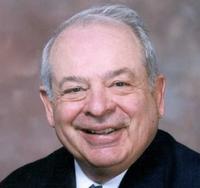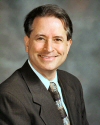Nebraska Legislature's Impeachment of Regent David Hergert.

More interesting legal news from the Cornhusker state (Nebraska). The Nebraska Legislature recently voted to impeach a member of the University of Nebraska Board of Regents, C. David Hergert.
According to the Notice of Impeachment, Hergert's impeachment is based on various election fraud complaints and Hergert's representations upon taking office that he had been "dutifully" and "properly" elected when, apparently, he was actually (allegedly) elected as a result of election fraud. Trial has been scheduled before the Nebraska Supreme Court on May 8, 2006.
The special prosecutor appointed to represent the Legislature in the impeachment trial, David Domina has called the case "unprecedented." In a brief filed by Domina, Domina has indicated that Regent could become the first state or federal official ever ousted for election fraud. According to Domina:
The court's opinion could become focal in yet-to-unfold international settings where the integrity of elections, and America's role in another nation's political process, is at stake.
Hergert's attorneys, Christopher Ferdico and Sean Brennan, have attempted to limit the Nebraska Supreme Court from allowing the Legislature to subpoena witnesses and conduct discovery for the trial. They have argued that the Legislature was required to conduct discovery prior to issuing the notice of impeachment and that the Nebraska Constitution gives the Supreme Court authority to convene for trial only.
The charges upon which Hergert's impeachment was issued stem from alleged election law violations during a 2004 campaign and subsequent oath of office. Hergert earlier settled with the Accountability and Disclosure Commission, acknowledged accepting an illegal campaign loan and failing to report a contribution on time. In that settlement, Hergert agreed to pay more than $33,000 in fines in exchange for the Commission not seeking criminal charges.
Making the case even more interesting is the fact that Domina has attempted to subpoena Nebraska's current sitting Governor, Dave Heineman as a potential witness. Accoring to the Omaha World Herald this is the first time a sitting governor in Nebraska has been subpoenaed to testify "since 1993, when then-Gov. Ben Nelson was subpoenaed in a case over the proposed low-level radioactive waste diposal site in Boyd County."
If you're looking for some light reading, check out the Nebraska Supreme Court's website containing .pdf files of all the legal documents in the Hergert case: Nebraska Legislature v. C. David Hergert.




